#reconceptualization
Explore tagged Tumblr posts
Text
CRITIQUE OF CRITICAL THEORY, III
Hopefully, the anecdote involving this blogger’s family and shared in the last posting serves as a basic grounding for the remaining points this blog makes concerning critical theory/pedagogy. The claim here, in a few words, is that Marxian beliefs while having useful ideas and even ideals, is judged to be, in its basic assumptions, wrong and that goes a long way in explaining why polities guided by its precepts end up sacrificing liberties and relying on dictatorial governance.
Yes, critical theory does not solely utilize Marxian precepts, but to the extent it does, there is this lingering concern. And in that vein, implementing those arguments as a guiding force for civics education, at its basis, becomes highly suspect and this blogger believes, rightly so. The challenge is: how does one infuse instruction with a concern for the oppressed and their oppressive conditions,[1] yet maintain a strong commitment for liberalized, democratic rule?
With that note in mind, this blogger wishes to convey a foundational problem that critical pedagogues have created and in which they seem mired. To a certain degree, they suffer from a contradictory foundation. As such, these meaningful contradictions preclude this view from serving as a guiding force that its advocates strive to establish.
An example of this counterproductive element is that while the approach is influenced by the Marxian emphasis on class struggle, it is prone to adopt many elements of pedagogic ideas by such writers as Freire[2] (reviewed in a series of previous postings), along with post structural/postmodern concerns that directly attack, theoretically, such mega-theories as Marxism. In this line of thought, Cleo H. Cherryholmes writes:
Critical pedagogy is a vague and ambiguous term. … [C]ritical pedagogy has referred to curriculum theory's “reconceptualist” movement … This movement has never been unified and continues to defy easy description. In the United States it is historically related to such “reconstructionist” educators of the pre-World War II period … It also exhibits influences from various western European intellectual developments that range from phenomenology to critical theory to post-structural and postmodern thought. Recently, critical pedagogy in the United States has incorporated ideas from literary criticism and theory, various strands of feminist thought and practice, and pragmatism.[3]
This varied foundation means that its actual implementation has found it difficult to interpret their ideas toward developing definite curricular and instructional strategies. To date, what seems to be the extent of their efforts is to make changes in the content they recommend or insert in textbooks – which have become easy targets for conservative policymakers (e.g., the governor of Florida) to attack and prohibit.
To date, the effort has been made to argue that oppressive conditions either exist or have existed in the history of this nation. A lot of the effort has centered on race – in how African Americans, Asians, and indigenous people have been exploited. This has been done with content material depicting individual incidents of such occurrences – e.g., the events surrounding the Montgomery bus boycott in 1959.
Or the lessons can inform students of statistics and descriptive accounts which document the maldistribution of income and wealth. These accounts are analyzed according to race, gender, ethnicity, age, and other categories, proving that certain groups are marginalized; they are castigated as “others” in prevailing discourses.[4]
And yet another approach is that critical pedagogues use what are known as qualitative studies, usually utilizing interviewing techniques that uncover or shed light on social or school conditions which place some marginalized groups at a disadvantage. While this blogger judges these approaches to have value, their use lacks solid connections to – heaven forbid – positivist studies which also have value.
But to date, one is hard pressed to find application of more substantive content reflecting the approach’s more theoretical concerns. A great deal of attention of these writers is dedicated to epistemological questions. That is, critical literature invests a great deal of theorizing on the question of how students learn what they learn or how they know what they know.
Culture and language become, in these epistemological efforts, central concepts or factors. Lisa J. Cary captures the flavor of this literature:
[For example, several writers in this vein] call for a study of the underlying epistemological assumptions and normalizing practices of anti-racist and multicultural education to work against the assimilationist tendencies of institutionalized efforts. Whiteness is a culturally constructed epistemological position of dominance. [It engages in othering] all considered non-white and creating the possibility of excluding them through objectifying and pathologizing their racial constructions. The epistemology of whiteness is a culturally advantaged standpoint from which to maintain positions of privilege and power.[5]
Without a direct and clear exposition of how the nation exemplifies how oppressive these advocates claim the nation to be, the message is not effective and does not hit home with the prevailing student population.
Why? It fails because:
· There are just too many cases of success from humble beginnings to glibly rate the US as an oppressive nation.
· The prevailing language of the nation supports this rags to riches discourse – e.g., it pervades the media.
· While there are oppressive practices not just in the US but across the advanced nations, the common belief is that such is the way of the world – look at what exists in non-developed countries.
· And part of the established view that while oppression is regrettable, there are governmental programs established to assuage the more egregious aspects of its ongoing condition (read welfare programs and the like).
While such messaging might be considered wanting – such provisions do not solve the inherent problems – one might be hard pressed to classify the US and other Western nations as oppressive societies albeit the oppressive conditions and practices they sustain.
Relative to this discussion, defining the terms oppression and oppressive society would be helpful. Here, the concern is what critical pedagogues might offer as a definition: Oppression is any condition in which an individual or group is subjected to unjust treatment and that holds down those affected in terms of economic, social, and/or political conditions. All societies have, within their state of affairs, suffered from examples of oppressive acts or conditions.
That is, the definition offers a low standard for allocating an oppressive status to a nation – it pertains to all nations. Here is what this blogger believes is a better definition: An oppressive society is one in which acts of oppression occur and the victimized party(ies) have no political, legal, economic or other means, short of violent revolution, to effectively fight against the offensive condition(s).
Such a definition can easily be applied to southern states through slavery and after during pre-civil rights movement years – some would argue the term still applies to all of the US in how it treats African Americans.[6] Yet, one can also argue extensive policies have been put in place to address what is offensive with existing conditions. The only point here is that there exists some level of nuance and one is hard pressed to comment without being categorized as supporting oppression or fighting it.
But generally, through the 1990s, the nation was meeting many of the conditions that one could consider oppressive. In the new millennium, though, one can argue that a regression has been taking place in those efforts. This blogger has cited many of the income and wage shifts in favor of upper classes that characterize that development.
The nation now has an extended and what seems to be chronic unemployment among certain groups that adds to the concern, and these extend to white groups who manned many manufacturing jobs. But still, there are significant, institutionalized means by which people can do things to meet their disadvantages.
For example, what is being offered? There are meaningful self-improvement opportunities. The community college movement, for example, is no small contribution – it has opened college level education to many who otherwise would not consider such an option. And of course, there are political means toward changing government policies that either provide opportunities or are influential in promoting them in the private sector. Other types of actions or policies can be listed, but for the purposes here, the point is made.
That is, given the definition and how one measures things (highly influenced by one’s biases), one can make the argument that while the US has oppressive qualities, this blogger believes that it is not an oppressive society. Perhaps a review of a recent historical development would be of further help in describing what this blogger believes exists. That is the economic downturn that started in 2008.
Back then, the nation had just had an enormous blow to the economic system. Part of that condition was caused by monumental debt in the private sector. That included households. It led the nation to a recovery period that lasted about eight years – some think that the nation is still recovering. But within common conditions, with complete stabilization, the economy would not be able to generate the level of demand that will allow Americans the level of economic growth to meet the oppressive conditions that seem to be in place.
As long as conditions improved within the US, this blogger believes the nation would regain its march toward becoming a more perfect union. But critical education makes the claim that under the current system, oppression has been a reality and is chronic and institutionalized. They claim that society needs to be transformed, although to what is often not clear as well as how to get there. By relying on a more unrestricted definition of oppressive society, they believe a useful curriculum, under such a construct, should be geared toward such a transformation.
And with that targeted purpose, such a definition would skew efforts to address oppression in the classroom to only conditions where injustice is practiced. This is not a complete study of the US and demeans the successful efforts of those people and their sacrifices to make this a more just society. For example, relating such information as ranking of nations according to median income is telling statistic.
Behind only Luxembourg, UAE (oil rich country), Norway, and Switzerland, the US has the highest level of median income based on international dollars – a fictitious domination created for purposes of such comparisons.[7] The US leads in many of the efforts to promote and institutionalize just practices, to provide securities and opportunities extended to marginalized groups, and to advance just practices abroad.
While many of these are continuously under attack, they are part of US policy. These aspects of the American story are valid, and an honest curriculum should include these more equalizing efforts along with portrayals of those incidences and institutions that have created and sustained injustices which have besmirched this nation's history.
Let this posting add one last word concerning this focus on unjust conditions within this nation’s politics and history. A critical approach seems to assume that students have an innate concern for justice. The reasoning seems to be that once students are exposed to the socialization practices of dominant agents in the learning processes of a culture, when they depict exploitive practices, they will naturally be offended and motivated to find remedies for such conditions.
This is particularly true, they say, if students are negatively affected by any oppressive practices. Appeals to their sense of justice and their realization that all of society is negatively affected when groups are victimized by such acts and discourses will motivate students to participate in any effort to right the wrongs.
Critical pedagogues rely on relevancy and empathy to involve students in the value questions they ask in inquiry exercises that these teachers facilitate in class. This blogger is afraid that this assumed, almost automatic response underestimates the psychological factors involved and he finds this to be a dubious assumption. His next posting will address this last shortcoming.
[1]This blogger writes “infuse instruction with a concern for the oppressed,” if readers recall. Marx himself, at least in his theorizing, did not see socialism take hold until conditions predicated that it was in the self-interest of labor or the working class to institute a socialist state. That is why the theory was seen as scientific and foretold an inevitable outcome. It did not depend on the altruistic motives of the participants or on them realizing that their participation would fulfill their true sense of themselves – their humanization. This latter aspect would come about only after socialism took some hold and the opportunities to have such growth were naturally present.
[2] Paulo Freire, Pedagogy of the Oppressed (New York, NY: Continuum Publishing Company, 1999).
[3]Cleo H. Cherryholmes, “Critical Pedagogy and Social Education.” in Handbook on Teaching Social Issues: NCSS Bulletin 93, eds. Ronald W. Evans and David Warren Saxe (Washington, DC: National Council of the Social Studies, 1996), 75-80, 75. Efforts to unite the movement under a set of ideas persist to this day. See for example, “Critical Pedagogy: 8 Key Concepts You Need to Know,” The Necessary Teacher Training College, November 4, 2022, accessed May 18, 2023, https://www.dns-tvind.dk/critical-pedagogy/.
[4] See, for example, Donna M. Gollnick. and Philip C. Chinn, Multicultural Education in a Pluralistic Society (Upper Saddle River, NJ: Merrill, 1998) OR Michael Apple, Cultural Politics and Education (New York, NY: Teachers College Press, 1996).
[5] Lisa J. Cary, “The Refusals of Citizenship: Normalizing Practices in Social Education Discourses,” Theory and Research in Social Education, 29, 3 (Summer), 405-430, 422-423.
[6] One very convincing argument in this vein is offered by Isabel Wilkerson. See Isabel Wilkerson, Caste: The Origins of Our Discontents (New York, NY: Random House, 2020).
[7] “Median Income by Country 2023,” World Population Review (n.d.), accessed May 17, 2023, https://worldpopulationreview.com/country-rankings/median-income-by-country.
#critical theory#critical pedagogy#Marxian theory#reconceptualization#oppressive society#median income#civics education#social studies
0 notes
Text
love love love writing geto as a kind loving indulgent lover who is so soft and gentle and enamored with you despite his cult leader inclinations and manipulative tendencies
#that's the geto in my mind sowwy#unless it's ibold geto bc he's a whole another level of messed up but we're not going to get into that :)#i think ddao geto is sexy for the fact that he's absolutely losing it but also trying to pretend everything's okay#he's the worsttttty with gojo but he's also good. but not that good.#my geto characterization in ddao is basically#he reconceptualizes jujutsu sorcerery as a job by readjusting his piorities#it's you gojo n the kids and everyone else can come after#that's the only way he stays sane in this fic#ddao
100 notes
·
View notes
Text
honestly thinking abt "i got mom'd" again in light of recent discoveries....imagine spending ur whole life trying to be a daughter who is a son who is trying to become her father so that maybe he'll be proud of her who like. so desperately does not want to turn into her mother. and then ur dad dies and ur no longer a daughter, and ur husband betrays u so ur no longer a wife, and ur brothers begin to close ranks so ur no longer a sister....shiv literally gets mom'd in this episode. all the other threads are being cut and the only one left is a growing umbilical cord
#just. thinking abt like. sense of identity etc#obviously this is a bit dramatic but. truly the upheaval of no longer being daddy's daughter bc daddy's dead#so like....obvious choice is 2 turn 2 the comfort of family for identity#leaning on her brothers....leaning into her identity as sister.....#except now that's become unstable too#and wife is completely out of the picture#so like. what family does she have 2 turn to. yknow#how does she reorder and reconceptualize her identity now that daughter doesn't come first....#succession#txt
146 notes
·
View notes
Text
Remember in Hollow Mind when Hunter said "I'll be home soon, Flapjack, stay safe. I love you, over and out." Crazy.
#like YEAH it destroys me NOW but it was a million times worse when hollow mind aired#because that moment really reconceptualizes hunter#you really didnt think he was so comfortable saying stuff like that yet#or that he was really all THAT affectionate with flapjack#the most affection he was shown giving him was slight head pats and soft smiles#but after hollow mind its like...god. yknow he was cuddling that little birdie and giving him scritches#and shamelessly cooing over him and being like ''i love you!! i love you!! i love you so much!!! :D!!!!''#deteriorates my vital organs
185 notes
·
View notes
Text
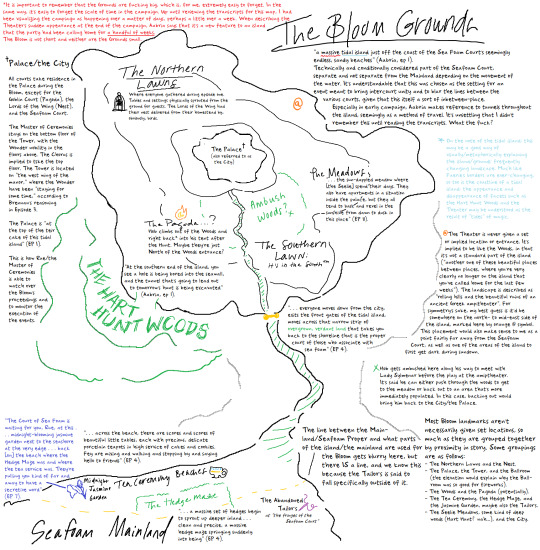
i had a realization a little under four hours ago that i hadn't seen anyone try to come up with a map of the bloom grounds, and i was like, hey, that'd probably be pretty handy, but i don't have time to rewatch the whole series right now to take notes. then someone in the ruehob discord said to skim the transcripts instead, so i did, annnd here we are. this is my third draft of this map and, for now, the best i can offer. i highly recommend opening this in a new tab on desktop to read the notes on the sides, because i realized while doing this that i forgot SO. MUCH. about the bloom grounds. so i ended up writing a lot down.
anyway enjoy lol
#acofaf#a court of fey and flowers#d20#dimension 20#aabria iyengar#mine#i started this because i wanted to be able to reference it for the first chapter of esw and realized over the course of it that the grounds#are... much different from what i remember them being. which means i have some hardcore reconceptualization to do </3#but that's fine this was a fun little hyperfix lol.
55 notes
·
View notes
Note
i started playing mystic messenger in 2017 so its been forever since i first experienced everything and reading ur liveblogging of it reminds me how wild this game is so.. its great to read ur liveblogging im so excited for u to see what comes next
Ahh im glad!
Im so so late to the party cause i finished half of the routes all the way back when mystic messanger was new but stopped after jumins route so a lot of the heavier lore, im experiencing it myself for the 1st time
And i heard a major spoiler about rika some time ago but out of context i didnt think much about it
But now im like "oh wait this is crazy actually" lol
#Imma do Vs and Unknowns route next and maybe replay yoosungs one last time!#the way 707s character has been completely reconceptualized in my head now...after all these years#i dont even know wat to say honestly#im excited for unknowns route especially#mystic messenger#cause i need more info on mint eye#im glad ppl still talk about mystic messanger#idk about cheritz other works but i might look into it after cause i really like how they set up this game
6 notes
·
View notes
Text
since mara & i are going to be evil wives & my necromancer is gonna be an evil durge what if rouzia was my denial durge 😳
2 notes
·
View notes
Text
youtube
im never gonna be the same btw
#i watched it yesterday but i needto talk about it just a tiny bit#Umm not 4 long cause i wanna sleep but this short film has done irreparable damage to me in ways that not even ctommy could hope to achieve#and thats saying something because exile arc helped me completely reconceptualize my abuse#but thats besdies the point THis shortfilm is rlly good i really recommend it#it made me so upset and so sick in a good way that ive been thinking about it nonstop since i watched it#Theres so much to analyze its insane.but its also just a genuinely good representation of emotion and abuse#i reallyllove it i need to talk about it forever#Youtube
3 notes
·
View notes
Text
JUDGING CRITICAL THEORY, XVI
An advocate of critical theory continues his/her presentation[1] …
With the last posting describing one school of thought under the general construct critical theory – that being reconstructionism – this posting will describe the second school, reconceptualization. Of the two, reconstructionism has a more collectivist orientation, while reconceptualization leans more toward an individualistic perspective. Yes, the two share many aims, but the latter emphasizes addressing more directly questions of consciousness.
How do the two, more specifically, share in the goals and claims they make? Here is a list of overarching, common attributes:
· they both have an organic and holistic view of people and society,
· they have a constructional view of knowledge as explained by this blogger in his explanation of constructs,[2]
· they place an emphasis on personal experiential knowledge,
· they recognize the power of pre-conscious knowledge,
· they use the humanities as a source of knowledge (more so with reconceptualization),
· they place in priority personal liberty with responsibility and higher levels of consciousness (driving one’s consciousness toward self-actualization – again, more so with reconceptualization),
· they value diversity and pluralism as both a means and ends,
· they advocate a need to reconstruct social and political processes, and
· they set forth a new language.
But here is how reconceptualization differs from reconstructionism. During the later years of the twentieth century, life and culture changed drastically from the Great Depression years of the 1930s. And in those later years, reconceptualization picked up steam. For one, it applied more recent curricular approaches and adopted its language to a new set of sensitivities and insights (for example, using terms such as “deconstruct”).
It also employed different categories of consciousness such as gender, race, and sexual orientation as well as socio-economic class, this last category being what reconstruction featured in its arguments. Reconceptualization advocates point out how these other groups have their own views concerning oppression and oppressive conditions – some are like class-based ideas and views of realities and others differ. That is, in particular they often vary from class-based views in their consciousnesses regarding oppression.
Other points of difference include:
· in terms of curriculum, reconceptualization does not hold it as a final product but as an experience, preferring the verb form of curriculum, currere,
· its advocates rely to a greater degree on psychoanalytic (preconscious) study in analyzing pedagogic conditions and needs,
· and these advocates are leery of scientific efforts at “discovering” targeted explanations and instead depend on more holistic, as opposed to analytic, understanding.
On this last point, reconceptualization advocates see science, as it is mostly practiced, to be overly aimed at problem-solving and tends to support bureaucratic, shallow efforts. As such, it is a research approach that seriously tends to obfuscate efforts at forming enriched understandings or meanings. In this, with his problem-posing form of study, the late Paulo Freire can be considered more of a reconceptualization educator who promoted holistic research.
Irrespective of what their critics claim regarding their approach, reconceptualization advocates argue that their work is value free and not meant or aimed at indoctrinating their audiences, be they students or social activists. They also boast of broadening their perspective by freely incorporating a larger array of literature such as poems, novels, short stories, and plays – do not be surprised if one finds in their work references to visual arts as well.
Other points of distinction with reconstructionism are that reconceptualization often relies heavily on existentialism[3] and phenomenology.[4] It is more focused on individual development as it often centers on self-actualization. There, the theoretical ideas of Abraham Maslow are recurringly employed.
This blog has observed that reconceptualization tends to be more in line with the natural rights view than what reconstructionism has been and probably not more so than when its advocates rely on perceptional claims of Carl Rogers and Arthur Combs. These advocates, while still maintaining the moral and theoretical differences with the natural rights view, do take on a more individualistic view than the more traditional reconstructionist approach. More concretely, they tend to cater to individuals’ whims and biases.
Beyond these differences, critical pedagogy overall has had significant influence on higher education in both the US and Europe. Starting in the 1960s (coinciding with the protests against the Vietnam conflict), its corps of supporters have engaged in various healthy – sometimes unhealthy – debates over various concerns. Those concerns include community, diversity, social justice, and a host of other concerns over perceived instances of oppression. Often their discourses relate these concerns to establishing or maintaining societal health.
For those readers who follow the news of late, they can verify that these issues are or are becoming more central to the national discourse. Various “red” states are taking a more proactive approach to counter the efforts of critical theorists and have taken on the ill-defined term “anti-woke” to summarize the concerns and antagonism for what critical advocates tend to favor. And some of this has been affecting civics curricular efforts including the banning of books and other media.
[1] This posting heavily relies on the work of William Schubert. See William H. Schubert, Curriculum: Perspective, Paradigm, and Possibility (New York, NY: MacMillan Publishing Company, 1986).
[2] This blogger has in several postings given a definition for the term, construct. For example, posting dated November 22 or 23, 2010, “A Default Construct,” and can be found in Blog Book First Hundred, accessed May 6, 2023, BLOG BOOK FIRST HUNDRED - Google Docs, 67. It gives a shortened definition.
[3] General belief in individual existence – investigative effort to determine what is the nature of being, particularly as it applies to individual human beings, as one experiences reality in this ultimately indeterminable world – and in total freedom and responsibility.
Existentialists point out that people are constantly faced with choices in which there are no known laws, ethical standards, or traditions to show the way. This makes life a state of being that inevitably produces anxiety.
[4] Study of consciousness as it relates to being. Founded by Edmund Husserl and Martin Heidegger; it can be a somewhat opaque philosophy. For the purposes here, though, the interest is in its contributions to how one’s mental acts, consciousness, handle the very nature of things in the practical world. It therefore is an alternative to empirical sciences.
#critical theory#reconstructionism#reconceptualization#oppression#consciousness#class consciousness#race consciousness#gender consciousness#civics education#social studies
0 notes
Text
i always come to the conclusion that autism does not seem like a useful way of describing my personal experiences but god damn if it hasn’t been a running theme throughout my lifetime. schrodinger’s autism…
i guess it’s more “this doesn’t fully encapsulate my experiences but I do gain insight into myself when I look through this lens and that can be useful sometimes; however I have other experiences that make me feel as though using that label for myself would be somehow disingenuous”. I mean I’m pro using what fits and discarding what doesn’t quite, and this has always felt like it doesn’t quite. thought not fully formed, honestly. one of those things that I don’t need to make a decision about. can remain a running theme without requiring commitment either way
#having to come to terms with the severity of my sensory issues lately#:/ I have gotten by on avoidance + thinking it’s just normal stuff#which: it’s all on a spectrum right#only within the past few years have I been able to eat leftovers#and more recently than that have I been able to actually heat them up myself#temporary and situational dissociation on purpose as a survival tactic#my BELOVED#anyway it’s a weird theme that’s been floated a few times by doctors then dismissed as Anxiety#which feels apt… I’ve gained some insight through reconceptualizing my experiences#thru the lens of autism but I still don’t think it would be beneficial for me to claim that id#ofc I’m pro self dx if you gain something from that lens#but I… hrmmm#i have been able to summon up more empathy for myself when I deal with the Aspects#found useful strategies etc…#not sure there was a point here#post
2 notes
·
View notes
Text
Literally this person:

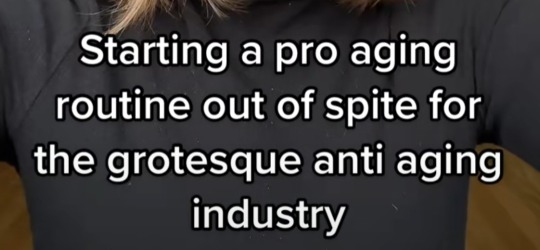
scrunching my face real hard rn
#reality#real world#suicide baiting#suicide cw#local tumblr lunatic forced to reconceptualize with the context of the
172K notes
·
View notes
Text
the way I am Inspired to do tbhwo writing but im too drunk for it to not suck ass
#we’re getting into the washed up dilf era so this is prime Write What You Know territory#shits gonna be SO uncomfortably personal get ready#also contains the scene where I started actually reconceptualizing working on the fic for real#get ready for that. it’s sadalinar fluff unfortunately. sorry :(#luke.txt#drunkposting#purple dragon jungle juice
0 notes
Text
two hours ago I found out that my parents are making plans to move here to the town where I live and I AM going to need 5-7 business days to process this one
#to be clear: we have a great relationship! it's not that!!#it's just...going to entail reconceptualizing a lot of things#I knew they were looking into moving but previous to now there was no discussion of them coming here#idk being an adult child is weird sometimes
1 note
·
View note
Text

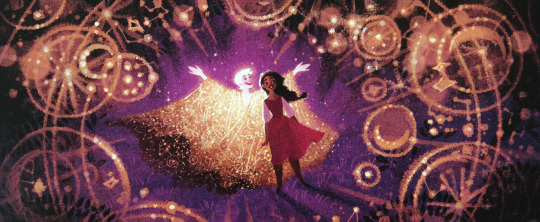
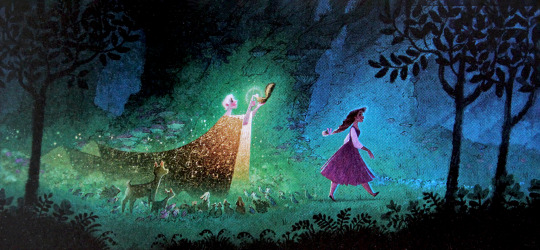
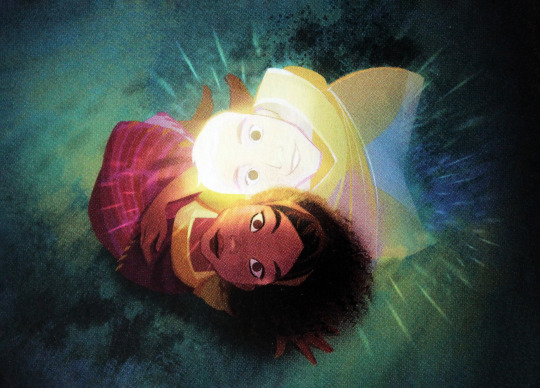
Early visual development for Wish (2023) by Griselda Sastrawinata-Lemay and Brittney Lee.
An earlier version of the film saw Star take on a human form as a magical, glowing character inspired by Peter Pan. Ultimately, the creative team reconceptualized Star as an ethereal, playful entity resembling Mickey Mouse. "Now Star and Asha have an emotional journey. They are soulmates." -Allison Moore.
#i would've loved to see star as a jack frost-ish character either as a love interest or platonic friend#they really had an original concept with the potential to be great if executed properly but chose to play it safe#disney#wish#my scans from the art of wish#do not repost#asha#star#visual development#disney concept art#concept art#art#artwork#illustration#disney animation#animation#disney wish#wish movie#wish 2023
15K notes
·
View notes
Text
Guess who just got diagnosed with adhd at the ripe age of 21✌️
If anyone has any good tips for managing transitions/adulting with adhd pls share! Trying to build a better toolbox leading up to graduation now that I have some context
#a rambles#delete later#time to reconceptualize my entire childhood#not complaining! nice to know leaving my phone in the fridge isnt just like a personality trait lol
0 notes
Text
Wanting to create art but not having the skill or motivation to learn how to do it. Wanting to see a piece of art, only to soon realize it doesn't exist, and you can't make it. Wanting something to exist, but not being able to make it simply appear, realizing you're going to have to work hard to see if you can make your vision come to life. And you'll probably fail, you almost definitely won't be able to recreate the idea you've cooked up in your head, but no one else is going to do it, so either you learn and you try or you just don't get the thing.
#art#craft thoughts#there's a scene in bojack horseman where tarantula-tarantino is making a film#and they keep reconceptualizing it into a new media form or something and it ends up not a movie but like a bi-monthly gift basket#(bi monthly like twice a month? or once every other month?)#and sometimes I think about my projects in those terms like#does this need to be a visual art piece or written?#can I make this in photoshop like a collage#or should I paint it with proper references?#should I fine tune the description and write it into a book?#or would it be a funny one off for a fic?
1 note
·
View note